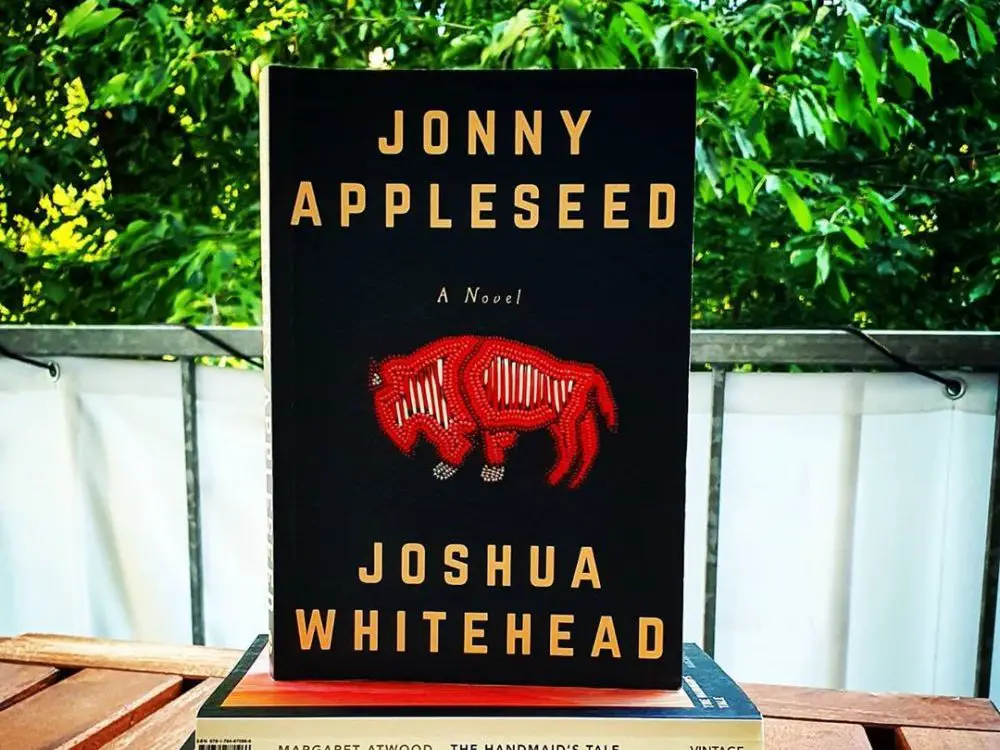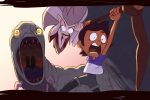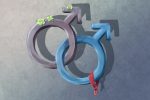“Jonny Appleseed” is a transformative book with a riveting plot and salient themes that will move any reader. Jonny, a gay NDN (shorthand spelling for Indian, a term that some Native Americans in the United States use to refer to themselves) who identifies as Two-Spirit Indi-queer, grows up on the reservation (rez) and eventually decides to leave for the big city of Winnipeg, where he becomes a cybersex worker who fetishizes his NDN identity to make ends meet. We follow Jonny’s life over the course of a mere seven days, before he has to return home for his stepfather’s funeral.
In these seven days we are exposed to a whirlwind of stories — stories about love, trauma, sex, kinship, ambition, his connection with his kokum (grandmother) and his first love (Tias). Jonny’s life is a series of contradictions: breaking and healing, pain and love, sorrow and joy. As the novel goes on and Jonny prepares for his return home to the rez, he begins to piece these contradictions together, finding meaning in their ruptures. Ultimately, Jonny takes us on a heart-wrenching journey as he explores the idea of home as the essence of one’s being; the complex, multilayered relationships that we have with our loved ones; and how our sexualities and identities profoundly impact our everyday lives.
So, what exactly is a Two-Spirit? Though the label has only been used since the ’90s, Indigenous individuals have identified as Two Spirit for centuries. It’s an umbrella term that bridges Indigenous and Western understandings of gender and sexuality. The Two Spirit society of Denver defines it as “another gender role believed to be common amongst most, if not all, first peoples of Turtle Island (North America), one that had a proper and accepted place within native societies. This acceptance was rooted in the spiritual teachings that say ‘all life is sacred.’”
Today, some confuse transgender and Two-Spirit sexual/gender orientations. While this may be due to a lack of knowledge, it is essential to acknowledge that there is a clear distinction between the two, and this distinction must be honored.
This clear delineation between trans and Two-Spirit became even more evident when the author of “Jonny Appleseed,” Joshua Whitehead, withdrew his book “full-metal indigi-queer” from consideration after it received a Lambda nomination for the Trans Poetry category. As he noted: “[His] gender, sexuality, and [his] identities supersede Western categorizations of LGBTQ+ because Two-Spirit is a home-calling, it is a home-coming.” Two-Spirit supersedes Western categorizations and is deeply rooted in Native American heritage, ancestors and reverence; it must be revered and respected as such.
Historically, Two-Spirits were honored for their unique abilities and contributions. Two-Spirits were not considered binary; rather, they embodied a distinct and separate gender — one that combined and balanced both male and female essences. This balance between masculine and femme essences gave rise to enlightened individuals, as they possessed more than one perspective on life. Two-Spirits were seen as “extraordinary” and “as possessing a sacred quality.” They played a crucial role in their society, fulfilling the most honorable positions, such as matchmaking, prophesying, name conferring and mediating. They also served as medicine men/women, hunters, warriors, shamans, chiefs and officiants for ceremonies like the Sun Dance of the Plains tribes. These roles were exceptionally coveted and revered.
Although Two-Spirit identity used to be linked to respect and honor, European colonizers quickly imposed upon Indigenous people their Westernized ways of thinking (and their homophobia, rigid binary roles and misogyny) under the guise of civilizing these NDNs. This stark shift is ever-apparent in “Jonny Appleseed,” where Jonny grows up on a deeply homophobic, rigid reservation. If he wants to freely express himself and relish in his Two-Spirit identity, Jonny realizes that he will need to leave the reservation. Despite this need to leave, Jonny feels sharp pangs for home; as he notes, “leaving always hurts — home isn’t a space, it’s a feeling” (20). This contradiction of needing to leave a place where you feel comforted is only one conflict that is explored in “Jonny Appleseed.”
There is also a connection between pain and love. As Whitehead notes, he crafted Jonny’s Two-Spirit character as someone with “pain, but who is triumphant in that pain, shifting it into love.” This theme is echoed in the novel as Jonny examines deeply painful experiences with those that he loves. This is explored toward the end of the novel, where Jonny reflects on his life with his kokum, while kneeling at her grave, hoping and wishing on every star that “[he] hope[s] [he] ain’t changed into no emblem of shame” (216).
We also see this connection between love and pain from Jonny’s mother, in her deep regret for her past choices, namely the way she treated her mother. Instead of being an emblem of love and respect, Jonny’s mother recalls showing such hate toward her mother. In actuality, this hate was born from a powerful love, but sometimes, these strong emotions entwine like a knotted rope and it’s impossible to pull them apart. In this triangle of unwavering love, there is regret and sorrow. It’s no wonder that a recurring tagline of Jonny’s is: “Funny how an NDN ‘love you’ sounds more like, ‘I’m in pain with you'” (88). Despite the overpowering love that seeps into every true relationship in this novel, there are droplets of agonizing pain. These remnants of pain and hate don’t weaken the love that these powerful characters feel though; they nourish it, reinforce it, strengthen it.
Finally, there’s the unifying concept of healing that’s laced throughout the novel. Through his matriarchal icons and biggest supporters (his mother and kokum), Jonny finds himself healing. In his mother’s embrace, he notes that he “felt like a kid again, felt like I had yet to grow into myself. I was home now, I felt it in my bones” (203). In this scene, we can sense that Jonny is growing; like the caterpillar transforms into the butterfly, Jonny is transforming his painful past into healing, for a brighter future that both he and his family can be proud of.
Along with this healing comes acceptance. Tias, Jonny’s first love and best friend, tells him: “‘Don’t ever change man, you hear me? Don’t ever change” — Jonny notes, “I’ll always remember what he said, it stays in my head like it’s another personal mantra” (136). Jonny is healed by this mantra, healed by the acceptance of his identity — sexual, ancestral and gendered. Jonny, despite every obstacle and judgment he faces, never fails to be himself. As his beloved kokum notes, he truly is “his own best thing” (207). By being his own best self and by owning his identities so profusely, Jonny proves utterly resilient.
“Jonny Appleseed” is a novel that braves uncharted water, exploring the undiscovered and the unknown. Everyone experiences an array of emotions, many of them contradictory, that serve to remind us of our imperfections and by extension, our humanity. We embody these contradictions every day: breaking and healing, hate and love, sorrow, joy and pain. Through Jonny, we are enlightened, exposed to the genuine, un-sugarcoated realities of the human plight. Through Jonny, we are called to heal despite the pain, despite the hardship. “Jonny Appleseed” isn’t just a profound page-turner; it will change your life.

















